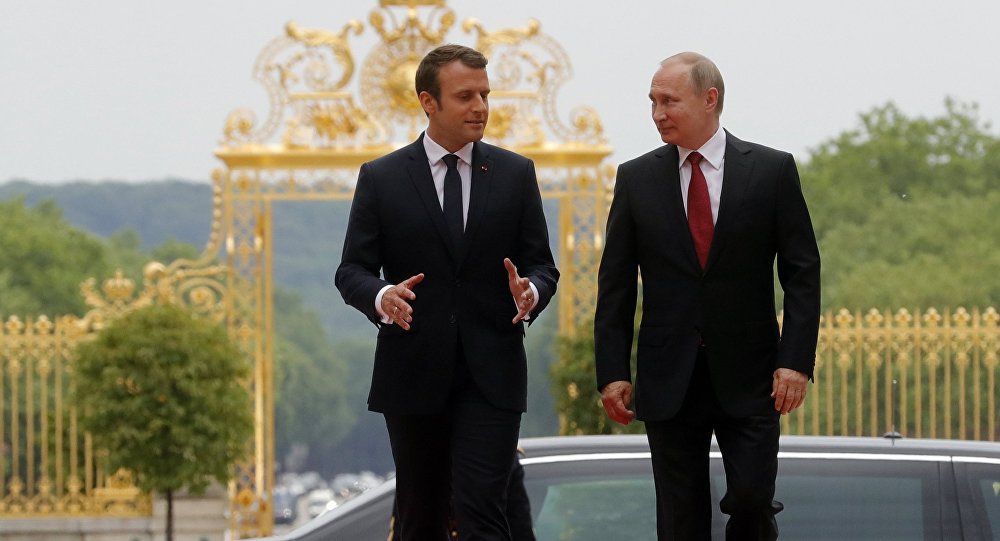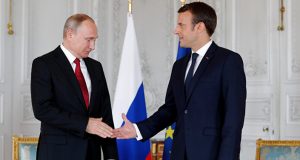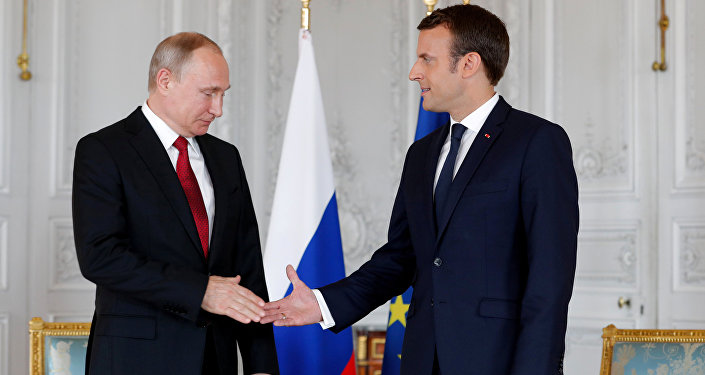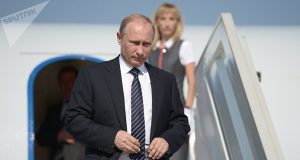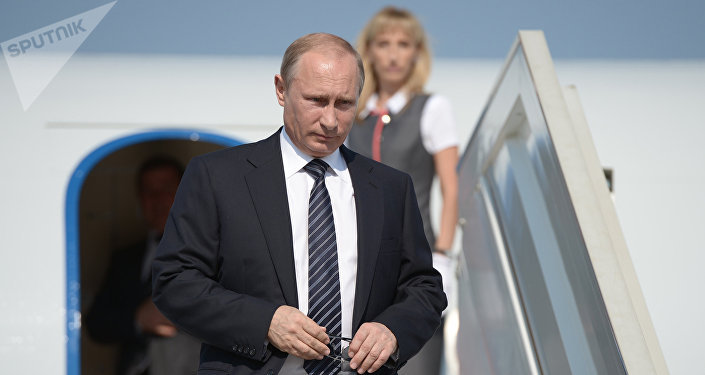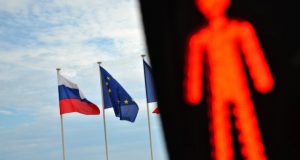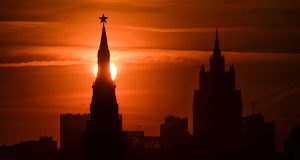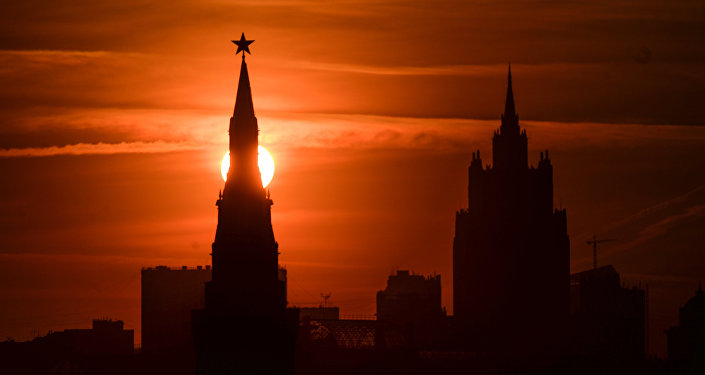Earlier this week, Russian President Vladimir Putin met French leader Emmanuel Macron in Paris. Putin became the first foreign leader to visit the French capital for talks with the new president of the Fifth Republic.
Macron underscored that none of the challenges that the world faces today can be resolved without dialogue with Moscow.
“What is important in our common history which celebrates 300 years today, is a dialogue between France and Russia that has never stopped… None of the most important challenges we face today can be resolved without the dialogue with Russia. That is what permits us to shape the common future,” the French president said at a joint press conference with Putin.
Macron also characterized the exchange of views with Putin as open and frank.
“It was a first exchange of opinions, I think it was very open, honest, we have told many things to each other. I shared my views concerning a number of situations… I think that we have said everything to each other,” he said.
The two leaders discussed wide range of issues, including the ongoing conflict in eastern Ukraine.
“We talked today mostly about our bilateral relations. We’ve discussed different issues, we’ve tried to find common ground,” Putin told journalists.
Macron said he discussed with Putin the implementation of the Minsk agreements, adding that new talks on the situation in Ukraine in the Normandy format should be organized.
“We also discussed the details of the implementation of the Minsk agreement. I expressed our desire to have a new exchange [of views] in the Normandy format with Germany and Ukraine, so that the full plan of this meeting can be shared and implemented, and so that the Normandy format permitted us to have a full access to the OSCE [Organization for Security and Co-operation in Europe] report, which ensures an important security measures in the region. This is the process which has to continue,” the French President said.
Meanwhile, before the talks at Versailles palace, Macron stressed that Paris will engaged in “dialogue without concessions” with Moscow.
“In terms of a realistic approach to politics, if Macron wants to protect only France’s interests [in his foreign policy] then France does not have interests in Ukraine. Thus, this issue can be compromised by Macron for the sake of a good relation with Russia. Paris is interested in working with Moscow in strategic and economic terms,” Moreau said.
The expert noted that the success of Franco-Russian cooperation will depend on whether France will be able to work out an independent foreign policy.
“Putin may regard France as a helpful partner or he may continue talking directly with Washington and Berlin. In recent years, France followed the United States and Germany in its foreign policy, and now Moscow sees talks with Paris as a waste of time,” Moreau said.
Commenting on the issue of anti-Russian sanctions, the expert was very cautious in his prognosis concerning their possible removal.
“Only time will tell what Macron really thinks on the matter. When he visited Russia as France’s economy minister he wanted sanctions to be lifted. During his presidential campaign, he advocated for keeping them in place, saying that the decisions should be made at a European level, which means that finally Berlin decides,” Moreau pointed out.
He reiterated that the situation will depend on whether Macron will designate France’s foreign policy or he will “act as a Merkel’s minister.”
“It’s clear that if France says no to sanctions they will not be extended or they will be kept by certain countries on a unilateral basis. But there will be no sanctions at a European level. Of course, Germany will not keep sanctions against Russia if France removes them, because Berlin doesn’t want to lose Russia’s market to Paris,” Moreau suggested.
Furthermore, the analyst pointed out that Macron can use the possible removal of anti-Russian sanctions as an instrument to bring peace to Ukraine.
“If Macron lifts sanctions the conflict in Ukraine will end. There are certain forces pushing for the conflict to go on and for building a wall between Russia and Europe. If sanctions are removed those forces will lose their interest to continue the conflict,” Moreau concluded.
